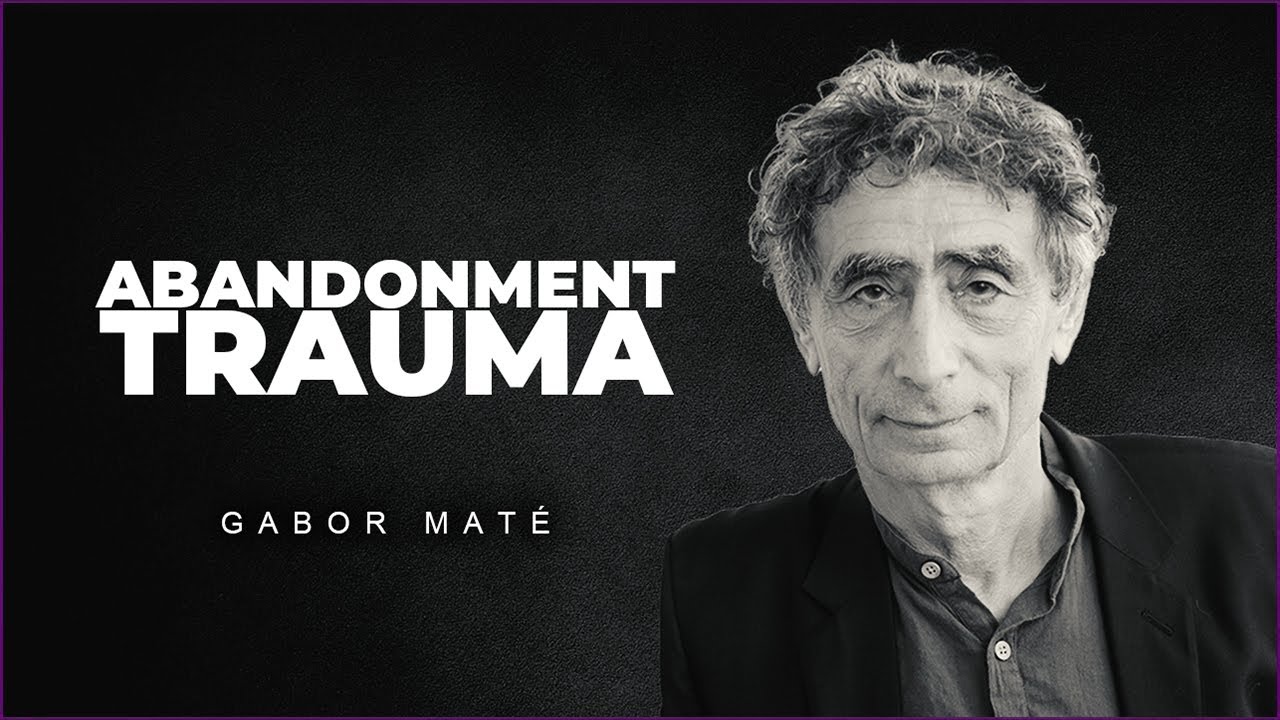The Trauma Of Abandonment | Dr. Gabor Mate
Unleash Your Creative Genius with MuseMind: Your AI-Powered Content Creation Copilot. Try now! 🚀
Imagine being handed over to a total stranger in the streets of Budapest as a one-year-old, your mother making this heart-wrenching decision to save your life because she didn't know if she'd live to see another day. This is the poignant beginning of a story that unfolds into a profound exploration of the intricate connection between our emotions and biology.
As the memories of that early event may fade, the deep sense of abandonment and not feeling wanted leaves an indelible imprint on the emotional canvas of our lives. It's a reminder that our emotional experiences are not isolated from our biological responses; they are inseparably intertwined.
The development of our brain, that intricate masterpiece of nature, is a fascinating journey. The brain isn't a pre-programmed entity, but rather, its growth and development are products of its interactions with the environment. The potential is genetically set, but the path it takes is sculpted by our experiences and relationships.
Unraveling ADHD: Not a Genetic Disorder
Gabor Maté, in his quest to understand the development of his brain, stumbled upon the diagnosis of ADHD at the age of 53. What followed was a revelation that challenged the conventional view of ADHD as a genetic disorder. Instead, he delved deeper into the roots of tuning out and absent-mindedness.
ADHD, Maté posits, isn't an inherited disease but rather an adaptive response to stress. When faced with overwhelming stress or trauma, our brain resorts to various defense mechanisms. Dissociation, or tuning out, is one such mechanism. It's a coping strategy that allows us to escape from the immediate distress, a temporary state of mental sanctuary.
Yet, what's adaptive in one situation can morph into a long-term trait when stress becomes a constant companion. This transformation from a state to a trait is where the seeds of dysfunction and pathology are sown.
The Dance of Nature and Nurture
The story of brain development is more intricate than a simple genetic blueprint. The brain's potentials are hardwired, but how they unfold and connect, and which circuits dominate, is a dance between nature and nurture. The most influential partner in this dance, it turns out, is the emotional relationship with the parenting environment.
Optimal brain development hinges on parents who are emotionally available, consistently present, and attuned to their child's needs. It's a rare and precious condition, especially in a fast-paced, high-stress world where parents often struggle to find the balance between work, personal life, and nurturing their offspring.
Anything that interferes with a parent's ability to provide these qualities impacts the brain's development. This, Maté argues, is the crux of numerous neurological and psychological disorders we see today.
The Ripple Effect of Early Trauma
Maté's journey took him back to his own early life in Budapest, marked by the horrors of World War II and the Nazi occupation. At the tender age of two months, his mother was emotionally crippled by the trauma around her – the loss of her parents in Auschwitz, the absence of her husband due to forced labor, and the fear of an uncertain future.
As an infant, he couldn't possibly comprehend the geopolitical chaos surrounding him. Still, he could sense his mother's distress, and his brain absorbed this stress like a sponge. Tuning out became his refuge. What he didn't realize then was that this adaptation, born out of necessity, would persist and shape his life for over half a century.
Implicit memories, formed in those early years, remained dormant until a triggering event brought them to the surface. This process of becoming aware and conscious of one's emotions is the first step towards healing.
Conclusion: Reconnecting and Healing
In our world of increasing diagnoses and medications, Maté's story is a powerful reminder that the biology of loss is affecting the brains of our children. Our response to their struggles, instead of behavioral control or medication, should begin with understanding and compassion.
The path to healing involves acknowledging our emotional experiences, reconnecting with our past, and fostering a supportive environment for our children. By doing so, we can break the cycle of multi-generational trauma and ensure a healthier, more emotionally balanced future for generations to come.
In the end, Gabor Maté's journey not only unveils the deep connection between emotions and biology but also serves as a testament to the power of self-awareness and compassion in the face of adversity. It's a story that encourages us to explore the uncharted territories of our minds and hearts, for therein lies the key to healing and transformation.

Related Recaps
- Slam Gaming - Đánh thường cờ liên quân - Tulen 3 sao cơn sấm sét thịnh nộ
- Shocking video captures shooting of sleeping homeless man
- Este Jueves 11:45 Hrs. en Volver a Amar
- China cancelling big imports of corn from the US, sourcing from South Africa rather
- Урочисте відкриття і пленарне засідання ХХІІ Каразінського колоквіуму